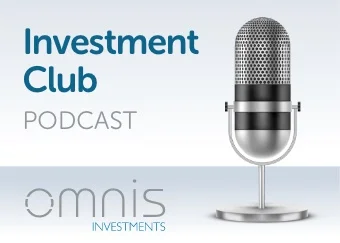Consider equity investments for long-term returns that beat inflation
Wednesday 18 September, 2019
Savings, Investment and Inflation are all interlinked in respect of growing your wealth and ensuring it doesn’t lose its purchasing power. Most people are aware of the options for savings and investments, whether you have a basic savings account or invest in more sophisticated products including ISAs, stock and shares, unit trusts or investment bonds.
What is inflation and how does it affect your purchasing power?
However, some clients are unsure what we mean when we talk about inflation. A basic definition of inflation is a general increase in prices and fall in the purchasing value of money.
Real world inflation example
If we provide a real-world scenario, consider the price of a Cadbury’s Freddo (Chocolate bar) and space invaders (packet of crisps). The price of a Freddo in the early 2000’s was 10p and a packet of space invaders was 10p. Now in 2019 a Freddo will cost you 25p and a packet of space invaders will cost you 20p. This is a 150% and 100% increase respectively on the price of those goods. Some people say that inflation explains our rising house market over the last 20 years, although it affects the general increase in house prices there are other factors affecting properties that have contributed to the increase in value. Now all of these are extreme examples of inflation as a recent article in The Times confirmed the inflation rate is currently at 2.1% and expected to rise to 3.3% over the coming year.
How money in savings accounts could be eroded by inflation
By now you should have a basic understanding of inflation and the premise behind it. So, if inflation is 2.1% and the average flexible savings account earns you 0.5% interest what does this actually mean? Basically that you are losing the purchasing power of your money by 1.6% a year.
Tracy Dove
Mortgage Broker & Financial Planner in North London, Basildon, Cheshunt, Waltham Abbey, Hertford & Hertfordshire said:
‘Now you are probably thinking that doesn’t sound too great because you are actually losing money by saving, so how do you combat this? One way would be to tie yourself into fixed rate bonds for 2, 3 or 5 years as this would be a no risk option. However, this means you are locking your money away for that period of time and you would be incurring a charge if you were to access this early. Also, the best 5-year fixed rate bond offers a guaranteed return of approximately 2%-2.5% and with inflation expected to be 3.3% next year you could still lose money. As a result, if you don’t want to partake in any risks with your money you will actually lose the real value of its purchasing power. So, if you have still managed to make it to this point without being too traumatised you should come to the conclusion that saving all your money into a savings account could actually make you worse off in the future due to inflation. Now not all is lost, and this is where investments could be considered.’
Saving your money in a savings account could make you worse off so consider investments as an alternative to savings
The average return over a 5-year investment period with a Thomas Oliver investment could be as much as 12%, based on historic numbers. Now remember this return is not guaranteed and it depends on your risk profile, individual circumstances and the type of fund you invest in. Also, the value of an investment and the income from it could go down as well as up. The return at the end of any investment period is not guaranteed and you may get back less than you originally invested.
What does the investment return include?
Let’s review a 12% return and actually work out what it means. After you deduct the inflation rate, platform charges, fund charges and adviser costs you could net a 7% return which is an excellent return for a 5-year investment. You can also access funds whenever you need them, or you can switch funds. However, the value of investments can go up and down in the short-term and although equities have outperformed cash over the long-term to achieve a sustainable growth target, we recommend you hold these investments for a minimum 5-year period.
Tracy Dove
Mortgage Broker & Financial Planner in North London, Basildon, Cheshunt, Waltham Abbey, Hertford & Hertfordshire continued:
‘Overall Inflation is at a steady, normal rate but savings rates are incredibly low, and you could achieve a loss on the real rate of return for your money. As a result, investment whether through pensions, funds, bonds, stocks and shares or properties could be a better alternative for you if you want to save for the medium or longer term. At Thomas Oliver we always provide specific individual advice to all our clients and make sure you are aware of all the details and any risks that may be involved. Initial consultations are always provided at our expense and therefore are free to the client.’
In Summary…
If investing for the longer term is something you are interested to know more about, please get in touch with our qualified team of financial advisers. Call us now on 01707 872000 to arrange a free initial consultation to discuss your financial planning requirements.
The value of an investment and the income from it could go down as well as up. The return at the end of the investment period is not guaranteed and you may get back less than you originally invested. The contents of this article are for information purposes only and do not constitute individual advice.






